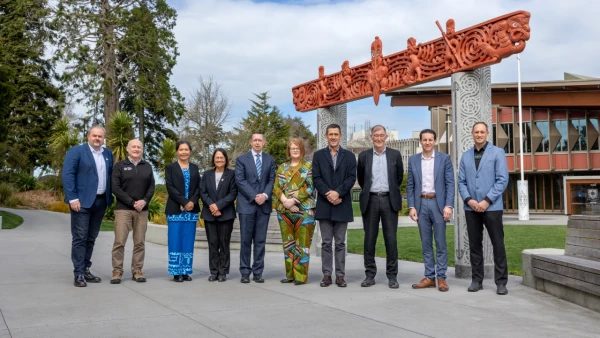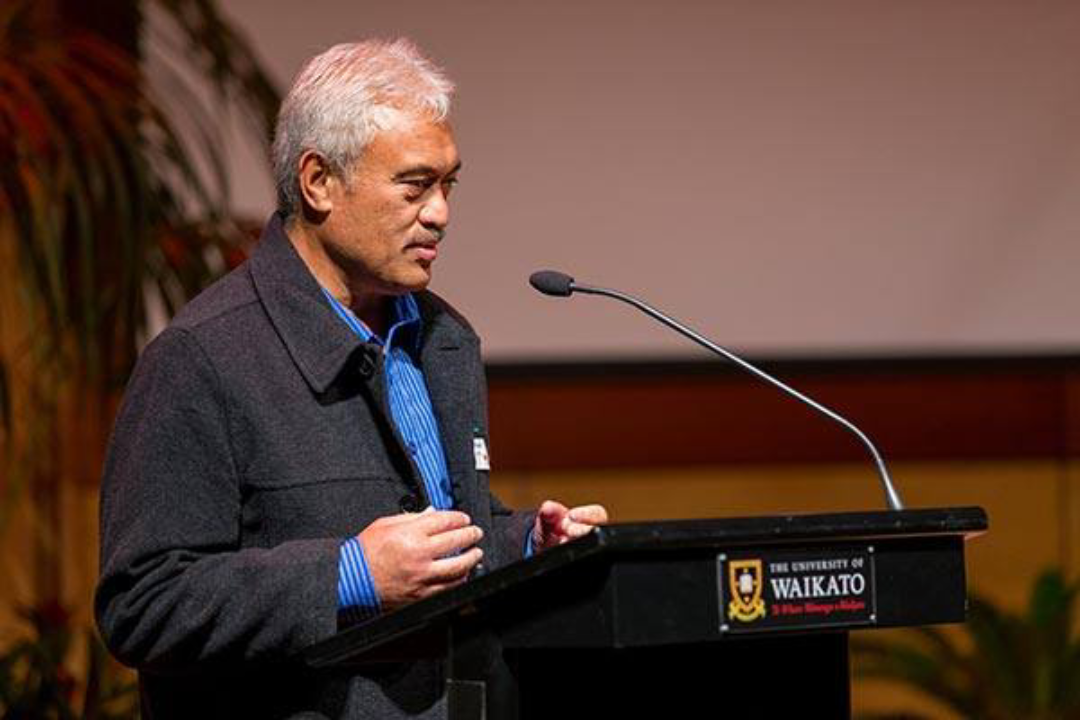The University of Waikato has named an expert advisory board to guide the establishment of the New Zealand Graduate School of Medicine.
The Medical Advisory Board comprises leaders with diverse knowledge and experience from across the country’s health sector, including representatives from the public and private health systems, general practice, rural health, community health, psychiatry, health equity, women’s health and health technology.

L-R: John Macaskill-Smith, Dr Grant Davidson, Papali'i Dr Suitafa Debbie Ryan MNZM, Lady Tureiti Moxon, Professor Neil Quigley, Fiona Michel, Dr Rees Tohiteururangi Tapsell, Professor Ross Lawrenson, Professor Jo Lane, Dr Marrin Haggie.
Chief Executive Officer of Braemar Hospital Fiona Michel will chair the Board, bringing leadership experience from the private and public sectors as well as extensive governance experience. Ms Michel is also a member of the University of Waikato Council.
The Board’s members are Dr Grant Davidson, Associate Professor Liza Edmonds (Ngāpuhi, Ngāti Whātua), Dr Carlton Irving (Te Whakatōhea, Te Ūpokorehe), John Macaskill-Smith, Lady Tureiti Moxon (Ngāti Pāhauwera, Ngāti Kahungunu, Kāi Tahu), Dr Samantha Murton MNZM, Papali'i Dr Suitafa Debbie Ryan MNZM and Dr Rees Tohiteururangi Tapsell (Ngāti Whakaue).
Ms Michel says the group’s breadth of leadership experience and specialisation in priority areas will help ensure the new medical school achieves its aims.
“We are pleased to play a part in the creation of the New Zealand Graduate School of Medicine and helping to address the country’s chronic workforce shortages in primary care and rural communities,” she says.
In addition to providing strategic advice, the group will strengthen partnerships with key stakeholders.
“Stakeholder support has been important in making the medical school become a reality. We look forward to building on those vital connections,” Ms Michel says.
In July, the University of Waikato received the Government’s support for its plans to develop New Zealand’s first graduate-entry medical school, set to open in 2028.
Pro Vice-Chancellor of Health, Professor Jo Lane, says the New Zealand Graduate School of Medicine’s curriculum will be designed to produce more graduates who choose to become GPs and who want to work in regional and rural communities.
“We’re training the doctors New Zealand needs,” he says.
Graduate-entry medical programmes require students to already hold a bachelor’s degree. They are the most common model of medical education in Australia and are the predominant model of medical education in Canada and the USA. This approach has proven to be highly successful in targeting areas with specific need, such as primary care shortages.



